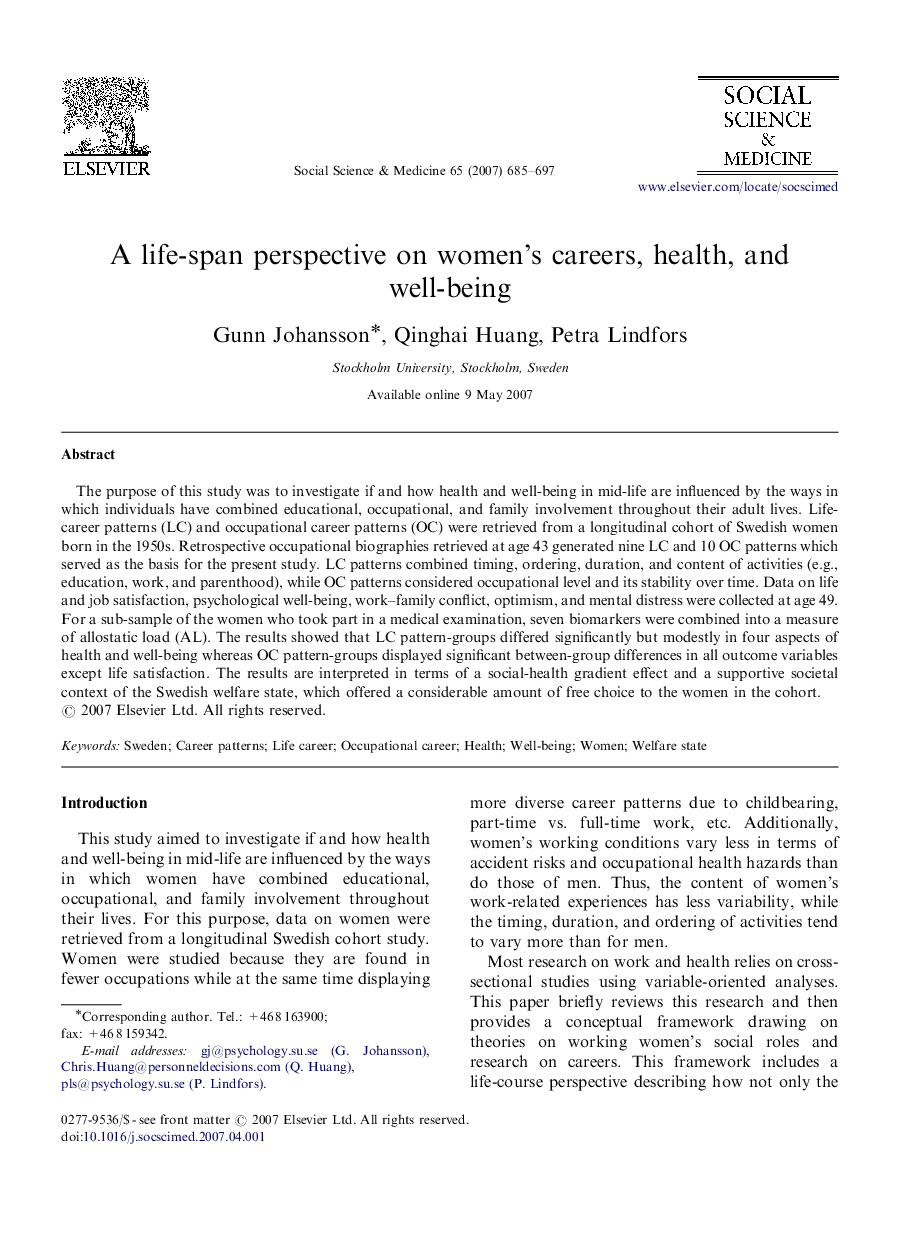| Article ID | Journal | Published Year | Pages | File Type |
|---|---|---|---|---|
| 954580 | Social Science & Medicine | 2007 | 13 Pages |
The purpose of this study was to investigate if and how health and well-being in mid-life are influenced by the ways in which individuals have combined educational, occupational, and family involvement throughout their adult lives. Life-career patterns (LC) and occupational career patterns (OC) were retrieved from a longitudinal cohort of Swedish women born in the 1950s. Retrospective occupational biographies retrieved at age 43 generated nine LC and 10 OC patterns which served as the basis for the present study. LC patterns combined timing, ordering, duration, and content of activities (e.g., education, work, and parenthood), while OC patterns considered occupational level and its stability over time. Data on life and job satisfaction, psychological well-being, work–family conflict, optimism, and mental distress were collected at age 49. For a sub-sample of the women who took part in a medical examination, seven biomarkers were combined into a measure of allostatic load (AL). The results showed that LC pattern-groups differed significantly but modestly in four aspects of health and well-being whereas OC pattern-groups displayed significant between-group differences in all outcome variables except life satisfaction. The results are interpreted in terms of a social-health gradient effect and a supportive societal context of the Swedish welfare state, which offered a considerable amount of free choice to the women in the cohort.
